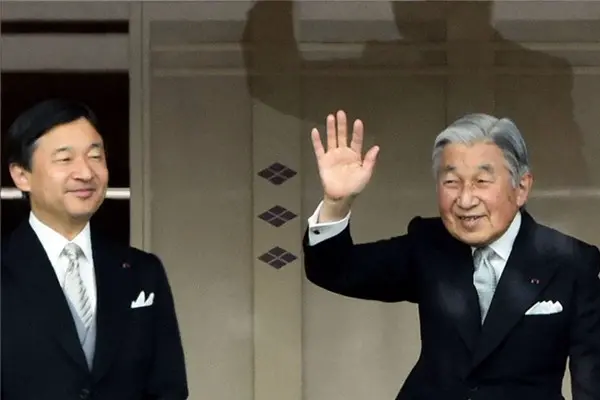Japan is planning for Emperor Akihito to retire and be replaced by his eldest son on January 1, 2019, reports said Wednesday, as the country works on a legal framework for its first abdication in 200 years.
Akihito, 83, expressed a desire in August to abdicate after nearly three decades on the Chrysanthemum Throne, citing his advancing age and weakening health.
Major national newspapers - the Yomiuri, Asahi, Mainichi and Nikkei - cited unnamed sources as saying Crown Prince Naruhito, 56, would succeed his father on New Year’s Day 2019.
Chief Cabinet Secretary Yoshihide Suga declined to comment on the reports at his regular news conference on Wednesday.
After Akihito’s announcement last year, the government established a panel of experts to help decide how best to proceed as the issue is fraught with historical and legal challenges.
Though abdications have occurred in Japan’s long imperial history there hasn’t been one in 200 years and under current laws there is no legal mechanism for one.
The six-member panel has discussed various legal options, with speculation rampant it will propose parliament pass a special one-time law to allow Akihito to step down.
The leading opposition Democratic Party, however, opposes a one-time change, arguing that would not ensure stable future successions. It has advocated a revision to the permanent law that governs the imperial family.
Abdication is a highly sensitive issue in light of Japan’s modern history of war waged in the name of Akihito’s father, the late emperor Hirohito who died in 1989.
Some scholars and politicians worry that the abdication issue could open a can of worms and risk Japan’s monarchs - constitutionally constrained to being the symbol of the nation - becoming subject to political manipulation.
Prime Minister Shinzo Abe’s government plans to submit to the next ordinary Diet session, to be convened later this month, a bill for special legislation that would enable the emperor to abdicate and apply only to him.
Although the first day of 2018 could provide a suitable milestone, if the legislation is enacted as planned, it would be too soon for sufficient preparation, a source told Kyodo.
As to the timing of the current emperor’s retirement, one idea is to include it in the special legislation while another is to stipulate in an ordinance, the source said.
The six-member panel is expected to release a report summarizing issues pertaining to the emperor’s possible abdication as early as Jan. 23.
Akihito has keenly embraced the symbolic role imposed on the imperial family after Japan’s defeat in second world war.
Previous emperors including his father, Hirohito, had been treated as semi-divine.
(SCMP)
 简体中文
简体中文

